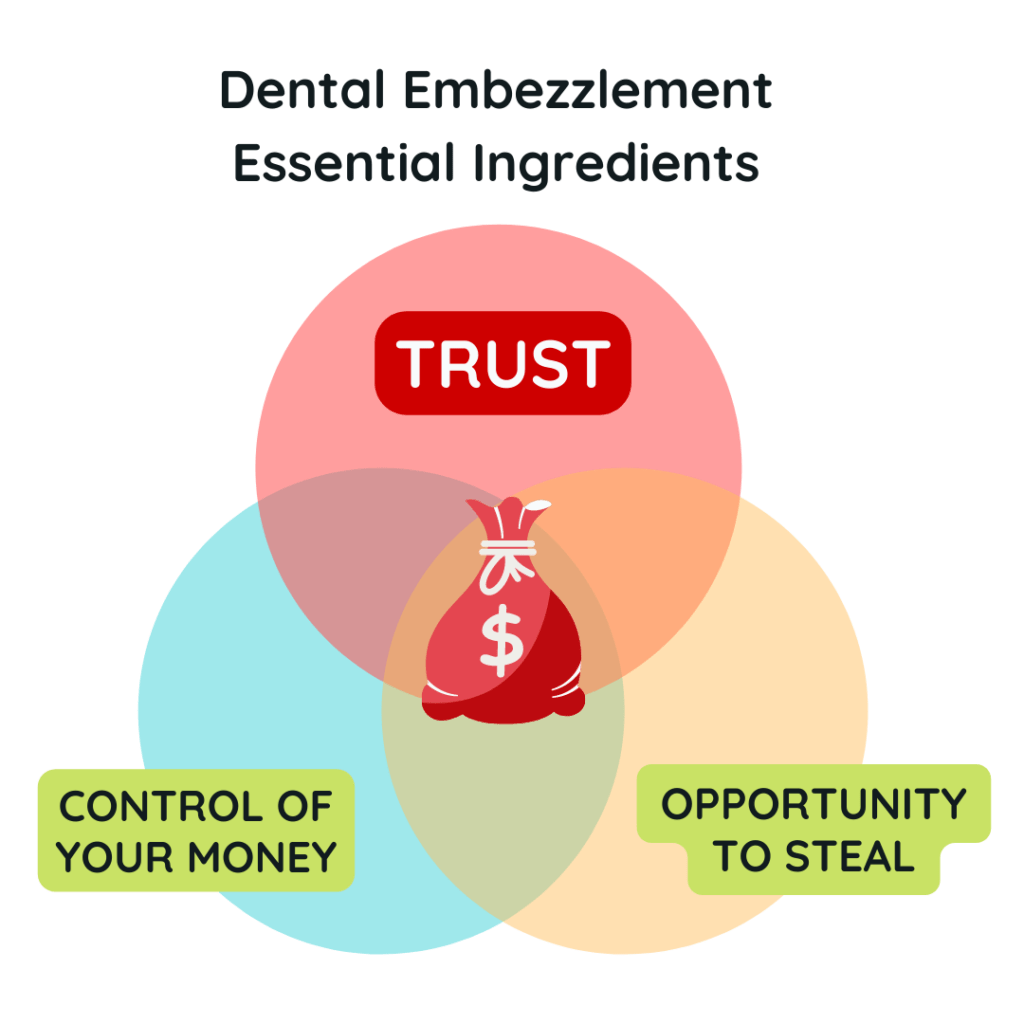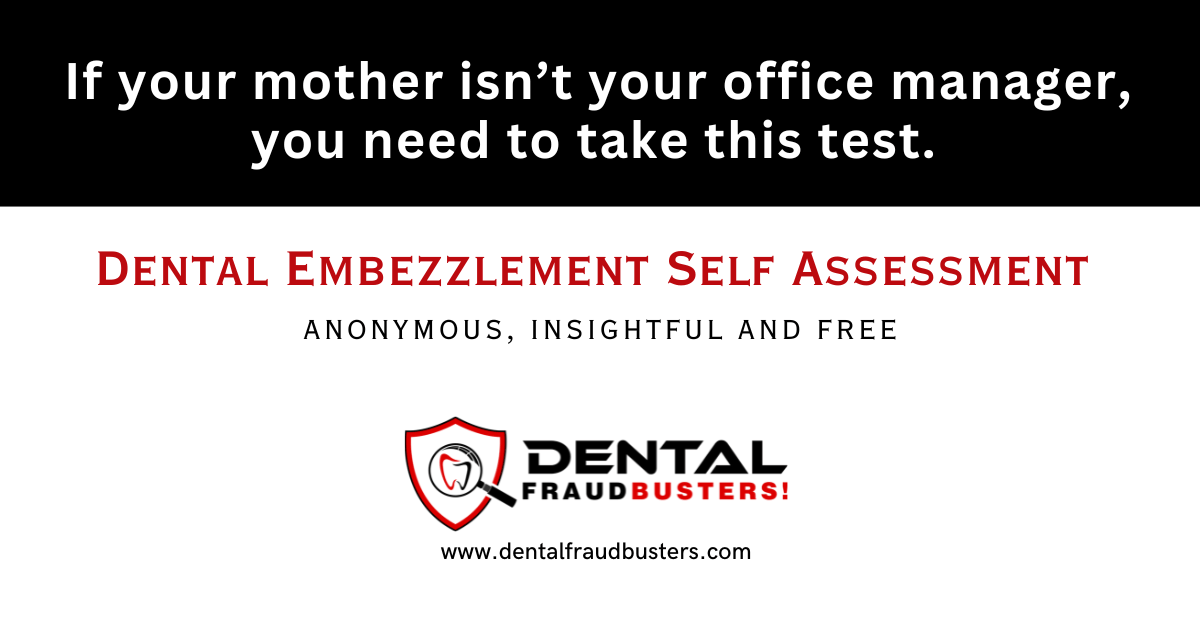Dental Embezzlement and Misplaced Trust
Our blog pages have hundreds dental embezzlement stories involving misplaced trust.
The majority of the those embezzlers were once TRUSTED employees, who after years of service, began swindling the practice.
To “cook the books”, those embezzlers needed three essential ingredients that are commonly found in dental practices.

Most of us are trusting souls, and we want to see the good in others as well.
Most dentists by nature are trusting souls.
This is further supported by their education, and then throughout their careers by association.
The principles of autonomy, non-maleficence, beneficence, justice and veracity are pounded into their heads in school.
Considering that dental practices are typically small workplaces, it’s no surprise when the day to day proximity with an employee can cultivates a strong personal and trust relationship.
Many practice owners consider employees as their friends and in some cases they treat them like family.
Most dental embezzlement cases involve MISPLACED TRUST
Misplaced trust happens when you bestow trust in an employee and that trust is later betrayed by the employee.
It’s a problem to find honest people – or is it?
When a dentist hires someone to manage the business side of their practice, unless that person is a family member, they are forced to choose someone from list of applicants or referrals – and they hope they can trust that person to remain honest throughout their employment.
That’s a tall order. The fact is, you have about a 10% chance of hiring someone with unimpeachable ethics who will never steal and a 10% chance of hiring someone who will steal from you the first chance they get.
The rest of us – the other 80% will steal if given sufficient pressure. (the term “sufficient pressure” being loosely defined)
THe “80-10-10” Rule says
You can hire three types of people:
- UNETHICAL: people who will ALWAYS steal
- SITUATIONAL: people who MAY steal under certain conditions
- ETHICAL: people who will NEVER steal

Don’t let misplaced trust cause you to make the biggest business mistake of your career.
‘It’s not that you can’t trust people, it’s that you must choose the people you have to trust.”
Bill Hiltz
The good news is that to prevent employee theft, you don’t need to be a dentist by day and an accountant by night.
Nor do you need become a micromanaging paranoiac. (yes, some of you do that)
See a Typo or an Error? Report it.
If you follow the steps below, you can weed out problem people before you hire them and learn how to check your practice for telltale sings of employee dishonesty.
Keep applicants with a checkered past out of your practice

You can download it here: Check job applicant resumes like a detective.
The motivation to steal can emerge at any time
Most dental embezzlers are first-time offenders who were not intending to steal when first hired.
Over time, they build familiarity and trust with the dentist and the practice. Through experience, they gain an intimate understanding of how things work in the practice. They become familiar with the things their employer looks at and more importantly the things that the employer does not look at.
At some point during their life, a situation arises that creates an intense pressure for money and they start to steal.
Stealing requires Concealing
When an employee steals, they must keep it hidden from their employer.
In most cases, the employee will adulterate the practice’s billing and payment records to create a false sense that everything is in order to conceal their crime.
To maintain this illusion, and to keep the owner from becoming suspicious, they change their behavior at work. These are behavioral red flags.
Did you know that in 85% of embezzlement cases, at least one of the “Top 6” red flags was observed?
Read more about The Top 6 Dental Embezzlement Red Flags or check your practice for 25 Red Flags by clicking the image below.
Red flags can be significant in uncovering financial misconduct.
A staggering 85% of embezzlement cases involved at least one of the Top Six embezzlement red flags.
CLICK ON THE IMAGE TO TAKE THE ASSESSMENT
Report an Error or Typo.
If you see an error or spot a typo, please let me know.
Send your comments directly to Bill Hiltz using the form below.


